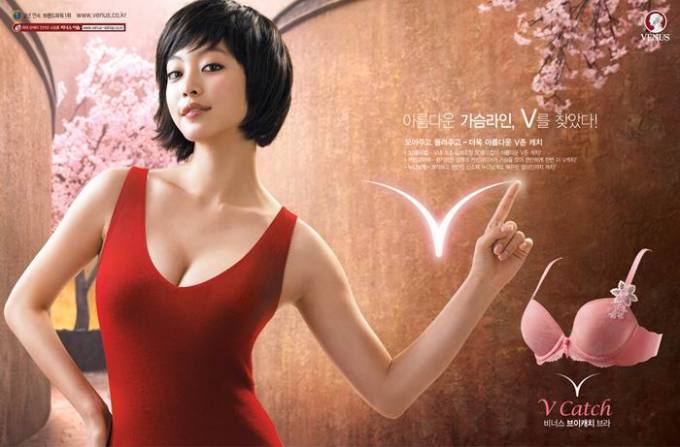 1. Number of Women Suffering Osteoporotic Fracture Increasing
1. Number of Women Suffering Osteoporotic Fracture Increasing
So short that I may as well give the entire article:
Around 200 out of 100,000 Korean women are suffering from osteoporotic fracture, more than a four-fold increase over the past decade. The estimated annual socio-economic losses from such fractures are around W1.05 trillion (US$1=W1,275).
According to a 2007 survey by the U.S. National Institute of Health, the number of female osteoporotic fracture patients was seven times more than that of breast cancer patients, 2.5 times more than stroke patients, and 1.4 times more than heart attack patients.
Moon Sung-hwan, an orthopedist at Severance Hospital, said, “According to the World Health Organization, one in four women suffers a fracture in her lifetime. The rate increases to over 33 percent among those in their 60s or 70s, and 50 percent among those aged 80 or over.” Hip-joint fractures are particularly dangerous, since approximately 30 percent of patients die within two years.
I accept that a host of factors may be responsible for the dramatic increase, but as I make clear here, here, and here, Korean women go to great lengths to avoid the sun for the sake of light skins (to the extent that they now have among the lowest Vitamin D levels in the world). Moreover, as Korean women’s disposable incomes have gone up over the last few decades then so too has the range of whitening creams, lotions, and pills and so forth available to them, one of the most recent of which is that in this recent advertisement with Kim Hye-su (김혜수) for Korean cosmetics company Missha (미샤) above (source). It is not illogical to suppose that with greater spending on such items comes even greater care and attention to avoiding the sun, hence a drop in Vitamin D levels, and in turn a greater risk of osteoporotic fracture.
Naturally, that would be more young women than the middle-aged and older women most at risk, so there is an unresolved issue of timing with the recent increase. Alternative explanations?
2. South Korea Ranks Low In Terms Of Its Mothers’ Quality Of Life
For the details, see here. Again, just like with the UNDP’s 2008 “Human Development Index” and “Gender Empowerment Index” that I discussed here, whereas most countries’ economic indicators are also pretty good guides to the quality of life there, when it comes to Korea anything to do with women’s quality of life trails those economic indicators quite significantly. In this case for instance, its GDP was 15th largest in the world in 2008, but somehow it was only the 50th best place to be a mother (out of 158 countries surveyed).
I haven’t looked at the breakdown of the figures, but I would be very surprised if Korean maternal and infant death rates weren’t indeed the 15th lowest in the world or even lower, but that Korea lost a great deal of marks on its inability and/or unwillingness to reintegrate mothers into the workplace. For stark illustrations of just how bad Korea is in that regard, see here.
3. Jeong Ryeo-won’s Anorexia Problems?
 (Source: zziixx)
(Source: zziixx)
In this interview, Jeong Ryeo-won (정려원) claims that she only lost the weight for a recent movie role, and never went below 40kg, but personally I think that the jury is still out on both. Regardless, in a sense it’s surprising that she’s been getting the attention that she has for it, considering that Biotherm presumably thinks that that caricature of an actual women above would not repel Korean women but be instead what they aspire to look like themselves. And if you think that that’s bad, wait till you see how she looked last July, when clothing retailer Giordano thought that pictures of her that scared my two year-old daughter would somehow have women rushing to their stores…
4. “If I Can Grope You, You Pass”
There’s been a great deal more discussion of the case of the student teachers sexually harassed by four teachers at their assigned public school earlier in the month (see #4 here), but probably the best is that at Brian in Jeollanam-do here, who also talks about the pervasiveness of this sort of thing at mandatory drinking parties at Korean workplaces. Here and here are two follow-ups also.
Meanwhile, the medical confinement of sexual predators has begun. According to Korea Beat, it’s a rare positive step, with rehabilitation as the goal.
 5. Swearing Increases on Korean Television
5. Swearing Increases on Korean Television
A strange inclusion perhaps, but while there are naturally awkward aspects to all societies that its members are aware of but refuse to acknowledge and/or discuss (particularly sexual ones), in this part of world cultural norms of deference to authority, saving face, and not wanting to stand out in the crowd and so on probably mean that pressing social issues tend to get avoided for longer than in most.
So far, so cliched. Sure. But in a general sense, it’s a step in the right direction when popular culture reflects how people actually think, speak, and behave rather than cultural producers’ notions of how they should do so, and can create a feedback loop leading to more of the same
More concretely though, a spate of Korean women swearing on television, which appears to be occurring in the currently playing popular drama Cruel Temptations on the right in particular (source), may well challenge the sexist dubbing of foreign films and dramas, reported on by Robert Koehler in 2006:
A women’s group has issued a report on the “sexist” dubbing of foreign films and dramas, reports women’s newspaper Ilda The group took a look at some 27 English-language dramas shown on terrestrial broadcasting in September and October. It found that most of them employed sexist sexist practices when dubbed into Korean. Namely, male characters spoke in banmal, or “low language,” while female characters used jondaenmal, or “high/respectful” language, even though the original English dialogue made no such distinctions.
I don’t watch enough Korean television to know how prevalent this practice still is (can any readers fill me in?), but if it does still occur then it can only look more ridiculous in light of these new developments.
And I say “ridiculous” because a) it is, and b) I’m not so sure that any Korean couples even speak like that anymore, but then if any of my own limited circle of Korean friends used such a sexist division of language with their spouses and partners then we probably wouldn’t be friends in the first place! Can anyone without kids who gets to leave the house more than do I confirm that that is indeed out of date now (or not)?
6. Love and Marriage
 (Source: Unknown)
(Source: Unknown)
First up, the Korea Times reports that there’s a recent trend for employers to set up events for their single employees to meet:
Here’s what they do ― First, companies offer their single staff to register for a large dating event offsite at a hotel or theme mark. Matchmaking companies then kick in with games and events to help the crowd get to know each other better. At the end of the session, participants pick ― through a secret ballot ― who they want to be with.
Duo says about 50 people are accepted for one session and 30 percent of them go home as a couple. Some companies host the event as much as four times a year.
Considering Koreans are physically at work for some of the longest hours in the world, albeit not actually working for much of them (see here), then these events certainly make sense, although I doubt that they’re so efficient and no-nonsense that 30 percent of participants “go home as a couple”(!). Which makes me wonder whether: the long hours and culture of the salaryman system is primarily responsible for the idea (or rather, the vestiges of it), and if so if it is mirrored in Japan especially; or the fact that most Koreans were raised in single-sex middle and high-schools until recently, and thus much prefer arranged, usually group meetings rather than being so bold as to ask the opposite sex for a date directly; or, most likely, a combination of the two?
Regardless, Korean companies clearly seem unlikely to go down the Western path of banning the practice anytime soon, but on a more grass-roots level Koreans I have spoken to about this personally have invariably been surprised to hear about what occurs – or rather, what doesn’t occur – in Western workplaces, and have taken a surprising amount of time to get their heads around notions such as “Don’t screw the crew.” But naturally my friends and students don’t speak for all Koreans, so I’d be interested in hearing what others have (had) to say.
Before I forget, Michael Hurt has written an excellent guide for (primarily) men on the positives and pitfalls of dating Korean women because of having such different backgrounds, including the effects of that single-sex schooling as mentioned. But don’t get the wrong impression: this is not a “How to screw Korean women” kind of Korean guide, but rather something I could very much relate to after being in a relationship with a Korean woman for the last 9 years, and that I wish had been available much earlier!
Also, Koreans are continuing to get married at later and later ages, compounded by the recent financial crisis:
The latest statistics compound the frustrations felt by baby boomer parents. Last year, the average marrying age was 31.4 for men and 28.3 for women. More and more Koreans are choosing to marry later in life. In 1981, Korean men got married at an average age of 26.4 and women when they were 23.2. This means in 27 years, the average marrying age has been pushed back five years. Three out of 10 Koreans between the ages of 25 and 34, which are considered prime marrying years, are single.
In addition, the crisis is also having an effect on the kind of ceremonies couples that actually do get married actually have, practicalities and strained finances forcing a rethink in the previous norm of the groom’s family paying for the couple’s apartment, and the bride’s for the contents.
A more equitable, more Feminist arrangement because it’s the cheapest? God moves in mysterious ways!
And finally, here is a story about a matchmaker that is setting up North Korean defectors with eligible South Korean men.
7. Quick Links
– A follow-up on the Joo Ji-hoon drug scandal, which I discussed last week.
– KoreaBeat briefly discusses a TV program about a 23 year-old that leads a double life as a university student and a prostitute, and also about the military opening up to girlfriends, sisters and mothers by encouraging conscripts to blog about their experiences. Considering the huge socialization effect of military conscription on Korean men, then this may ultimately prove much more significant than it probably first appears.
– And last but not least, more information on the cost of studying in Korea at Extra! Korea here, and part and parcel of the primarily financial and not cultural reasons that Koreans adults live with their parents until marriage.










